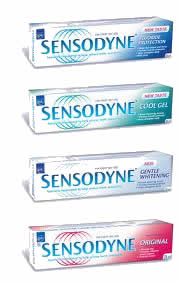PERCUTANEOUS TRANSVENOUS MITRAL COMMISSUROTOMY IN JUVENILE MITRAL STENOSIS
Abstract
Objective: To determine the efficacy and safety of percutaneous transvenous mitral
commissurotomy(PTMC), using multi-track double balloon technique in juvenile mitral
stenosis.
Design: Open non-randomised intervention.
Setting: Cardiac catheterisation laboratories of The Mater Hospital, The Nairobi Hospital
and Kenyatta National Hospital from 1996 to 2001.
Patients: Forty five consecutive patients aged less than 21 years with severe pure mitral stenosis
and suitable mitral valve apparatus (leaflets, chordae and papillary muscles) for successful
commissurotomy.
Intervention: Percutaneous transvenous mitral commissurotomy under local anaesthesia.
Standard left and right heart catheterisation for mitral valve disease. Trans-septal left atrial
entry using standard septal puncture technique and left ventricular position secured by superstiff
guide-wire. Double-balloon mitral valvotomy on single guide-wire using multi-track
balloon catheters.
Main outcome measures: Mitral valve area, left atrial pressures, mitral regurgitation grade,
NYHA functional class.
Results: Mitral valve area increased from 0.6±0.19cm2 to 1.9±0.19cm2 (p<0.001), left atrial
pressures from 30.5±3.9 mmHg to 11.5±3.8 mmHg (p<0.001). Most patients NYHA functional
class immediately improved from class III-IV to class I-II. There was no significant changes
in grades of mitral regurgitation or significant complications related to the procedure.
Conclusions: PTMC in juvenile mitral stenosis using the multi-track technique is safe and
effective yielding satisfactory immediate results.
commissurotomy(PTMC), using multi-track double balloon technique in juvenile mitral
stenosis.
Design: Open non-randomised intervention.
Setting: Cardiac catheterisation laboratories of The Mater Hospital, The Nairobi Hospital
and Kenyatta National Hospital from 1996 to 2001.
Patients: Forty five consecutive patients aged less than 21 years with severe pure mitral stenosis
and suitable mitral valve apparatus (leaflets, chordae and papillary muscles) for successful
commissurotomy.
Intervention: Percutaneous transvenous mitral commissurotomy under local anaesthesia.
Standard left and right heart catheterisation for mitral valve disease. Trans-septal left atrial
entry using standard septal puncture technique and left ventricular position secured by superstiff
guide-wire. Double-balloon mitral valvotomy on single guide-wire using multi-track
balloon catheters.
Main outcome measures: Mitral valve area, left atrial pressures, mitral regurgitation grade,
NYHA functional class.
Results: Mitral valve area increased from 0.6±0.19cm2 to 1.9±0.19cm2 (p<0.001), left atrial
pressures from 30.5±3.9 mmHg to 11.5±3.8 mmHg (p<0.001). Most patients NYHA functional
class immediately improved from class III-IV to class I-II. There was no significant changes
in grades of mitral regurgitation or significant complications related to the procedure.
Conclusions: PTMC in juvenile mitral stenosis using the multi-track technique is safe and
effective yielding satisfactory immediate results.
Refbacks
- There are currently no refbacks.


